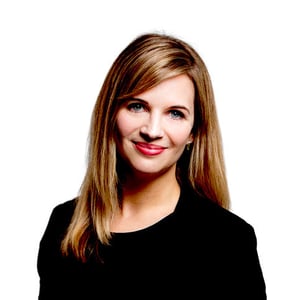 Crayon's Product Marketing Spotlight is an interview series where we chat with product marketers to get a glimpse into their careers and gain unique insight into product marketing strategy. In this edition of Product Marketing Spotlight Series, we shine the light on Jessica Iandiorio, Chief Marketing Officer at Mirakl.
Crayon's Product Marketing Spotlight is an interview series where we chat with product marketers to get a glimpse into their careers and gain unique insight into product marketing strategy. In this edition of Product Marketing Spotlight Series, we shine the light on Jessica Iandiorio, Chief Marketing Officer at Mirakl.
ED: What’s your current role?
JI: I’m the Chief Marketing Officer at Mirakl, where I run marketing globally. I’ve been here for three years now, and as of recently, I’ve had our BDRs and Inside Sales as part of my team, too.
ED: And what does Mirakl do?
JI: So, the easiest way to start is to think about how everybody shops on Amazon. And what has made Amazon so successful is its online marketplace. They have more products than anyone, and half of those products are provided by third-party sellers. You go and shop on Amazon, and your items come from different sellers, they arrive in different boxes - who cares as long as they get there quickly and cheaply.
Mirakl facilitates other companies, mainly a lot of other retailers, but also a lot of B2B companies, harnessing that same marketplace model to create a better online offer. We plug into an e-commerce platform, and we help make it easy for companies to bring on those third-parties to list their products or services. Then at the end of the day, ultimately give the customer a better offer.
ED: Tell me a little bit about your career path. What was your first job, and what did you do along the way to becoming the CMO you are today?
JI: I went to Ithaca College, and my degree is in Organizational Communication, Learning, and Design. But my education had a really strong fundamental basis in market research. So throughout college, I was doing different market research projects, and that led me very naturally to my first five years of working at Forrester Research.
Eventually, I grew out of research and into Product Marketing at Forrester, but you know, you're young, you're a little antsy, you want to try new things. So I thought, maybe I'll try the sales thing and see if I can make some money. So, I went to sales for a couple of years, and I refer to that as my “years of hard time.” I discovered how challenging it is to be a salesperson. I discovered the importance of having an asset “right now” rather than “perfect.” I used that experience to get back to product marketing, but do it better, with more knowledge about what sales needs, when they need it.
Then I went to Endeca, which was a website search software company. And it was fascinating to work there for two and a half years, right up to the acquisition by Oracle. Then, I went to Acquia, where I spent four years on the product marketing side. I started as a senior product marketer, and then I took the team over and grew it to a team of about nine product marketers by the time I left.
After Acquia, I briefly ran marketing at Drift before joining Mirakl, where I've been able to really leverage my product marketing skills in a marketing leadership role. For instance, this company had created a market, and we needed to accelerate the category creation for marketplace platforms. I had spent a lot of time conducting market research and figuring out how to build the right thought leadership to help build and accelerate the market opportunity. I have spent a lot of my time focused not only on our core use cases, but on our emerging use cases amplifying the awareness within our target audience in the Americas.
ED: How much of your day-to-day now involves competitive intelligence versus when you were focused more on Product Marketing?
JI: I'd say maybe 10% of my time is thinking about competitive scenarios since we don't have a huge number of named competitors. Though, there are related technology categories that we need to work hard to differentiate against, because it's an early market. Our prospects don't typically know exactly what the differences between dropship and marketplace are, for instance. My product marketer probably spends 20% of their time on competitive intelligence. And of course, depending on what's going on, what's the time of the quarter, and how competitive our sales cycle is, that time commitment might flare up or down.
ED: Where does Product Marketing fit within your organization?
JI: I have a strong opinion on this! I think when you're in growth, or “hypergrowth” mode, you need Product Marketing in Marketing, because they're going to be the quarterback and the catalyst for who the target market is. They’ll continue to align most with marketing, creating your thought leadership content, and making sure that the marketing engine has everything it needs to run and generate that growth flywheel.
When you get to a point at which the challenge is less about growth, and it's more about successful introduction of new products, making sure clients are using the new products, and customer satisfaction with the product, I think it makes sense at that point to move Product Marketing into Product.
ED: What skills do you think are necessary for a product marketer to grow in their career?
JI: One of the things I love about product marketing is how diverse the role is. One minute you can be side by side with the sales team delivering a pitch to a prospect, the next you can be with the product team delivering them insights from the market, or with marketing, helping fuel that engine that I mentioned. Most importantly, you have this critical role inside the organization to help the executive team work through the vision, and how you position the company.
There are a lot of soft skills involved, and the analytical piece also has to be part of your foundation. I find you need to be highly collaborative and likable. And you need to have a strong process for getting alignment and buy-in.
ED: What advice do you have for someone who wants to start a job in product marketing?
JI: My first piece of advice is that there are many entry points to product marketing. So today, I have one product marketer on my team, she is the best product marketer I've ever hired, and she was never in product marketing.
If you're thinking about it, you should talk to the person who runs that function and explain why you're interested in it. I'm always a fan of people who are willing to take on some project work before a transition. If you're inside an organization, and you're interested in product marketing, see if you can participate or own a project that product marketing typically owns, to show how interested you are. That way, you get to really assess if you’re really interested in the role, and the hiring manager gets to understand what you could be capable of.
ED: What is your advice for someone who is planning a product launch for the first time?
JI: I have I'm a huge fan of process on the product launch side, and I have different tiers of product launch processes.
I think everybody needs to be aware of all of the key audiences in a product launch, and all the key assets. That list can be very long if it's a full-scale launch or it's a new market opportunity, or it can be more bare-bones. But I think for your first product launch, you need to be working with an existing product launch plan and template.
You have to be highly collaborative, and you have to get people who don't work for you to do things for you in that process. So it can be stressful, and it can be on tight timelines. You need to be working in a structured document where it's clear what the project plan is, who owns what, and everybody understands what their deadlines are.
ED: What programs or resources have you found to be most impactful throughout your career?
JI: Pragmatic Marketing has a good training program that gives you the foundational intensive lessons on how to be a product marketer. A lot of their methodology is a bit too robust for, oddly enough, how pragmatic you sometimes need to be.
I think the best opportunity is networking and talking to other product marketers. Having the right fundamental education, the right resources, partners, and the right frameworks to operate within, are essential for success.
ED: What is something you wish you knew earlier in your career?
JI: Volunteerism is a path to upward mobility. But, when you get to a point of leadership, it can get in the way of you hitting your goals.
I was always looking for more work, and my career growth and trajectory has been strong. I attribute it to always being willing to take on more work, put in extra hours, ask for more responsibility. Having that spirit of volunteerism to try and raise my visibility, but also just help, has been really helpful to me and the growth and how quickly my career has grown.
In the leadership position, you have to redefine who you are at work and depart from the time where you could take on lots of extra projects and initiatives. If that's in your DNA, you might have an instinct to say, okay, there's a problem, I want to try and solve that.
But to be an effective leader, once you hit that leadership level, you can't burn yourself out on too many activities, and trying to solve too many things, you have to stay focused on your core job. My advice is to advocate for people to have more of a spirit of volunteerism earlier in their career. It will help them grow more quickly, they'll have more responsibility, and they'll get noticed for their extra efforts. I've never had a spirit of entitlement about myself, I’ve always worked for it. But then once you get to that leadership position, you have to just focus on doing your core job flawlessly.
ED: When you’re not hard at work, what’s your favorite thing to do?
JI: I have three children, and I love teaching my kids to cook. Now they're getting to the age where they can participate, so it’s a really fun experience, even if it's simple things. I also enjoy going to Paris every six weeks for work. I always find a way to enjoy something Parisian while I'm there like an amazing meal or doing a little shopping!
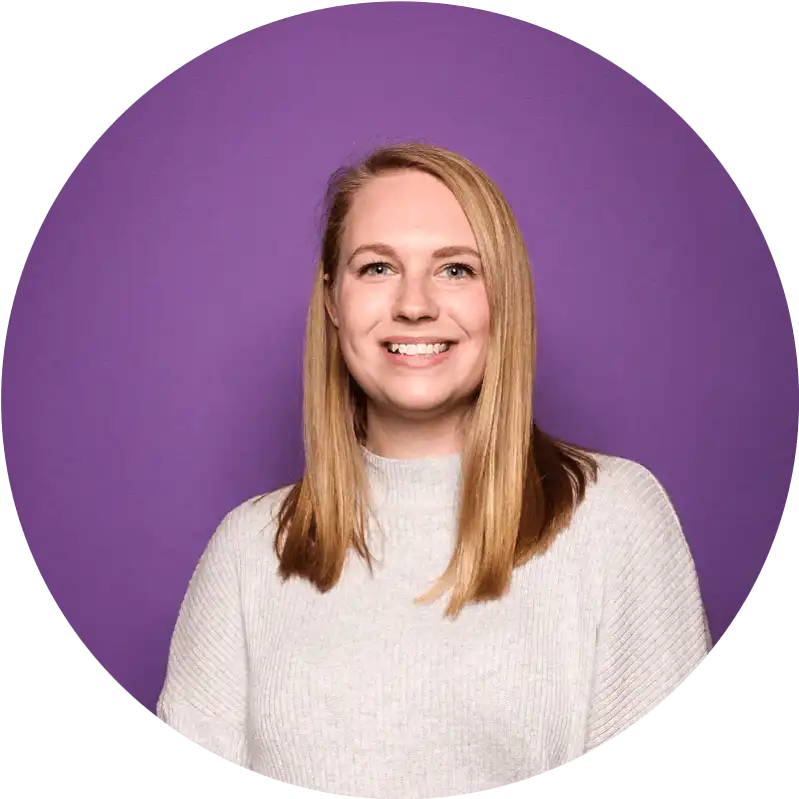
Related Blog Posts
Popular Posts
-
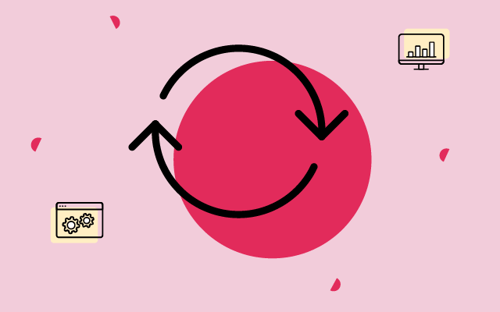 How to Create a Competitive Matrix (Step-by-Step Guide With Examples + Free Templates)
How to Create a Competitive Matrix (Step-by-Step Guide With Examples + Free Templates)
-
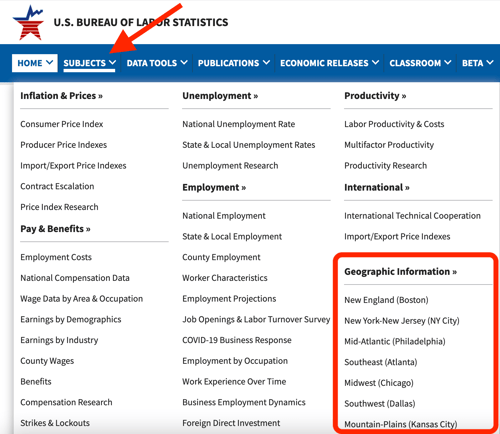 The 8 Free Market Research Tools and Resources You Need to Know
The 8 Free Market Research Tools and Resources You Need to Know
-
 Sales Battlecards 101: How to Help Your Sellers Leave the Competition In the Dust
Sales Battlecards 101: How to Help Your Sellers Leave the Competition In the Dust
-
 6 Competitive Advantage Examples From the Real World
6 Competitive Advantage Examples From the Real World
-
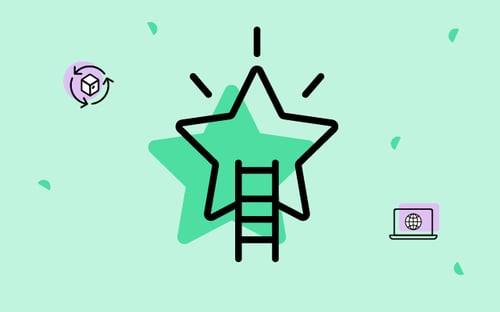 How to Measure Product Launch Success: 12 KPIs You Should Be Tracking
How to Measure Product Launch Success: 12 KPIs You Should Be Tracking

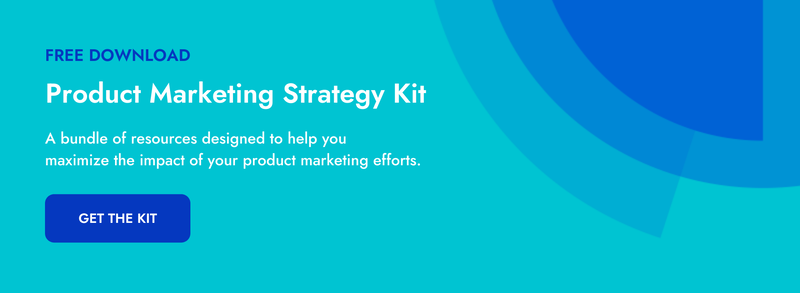


%20(1).png?width=500&name=CI%20Strategy-CI%20Audit%20(1)%20(1).png)
